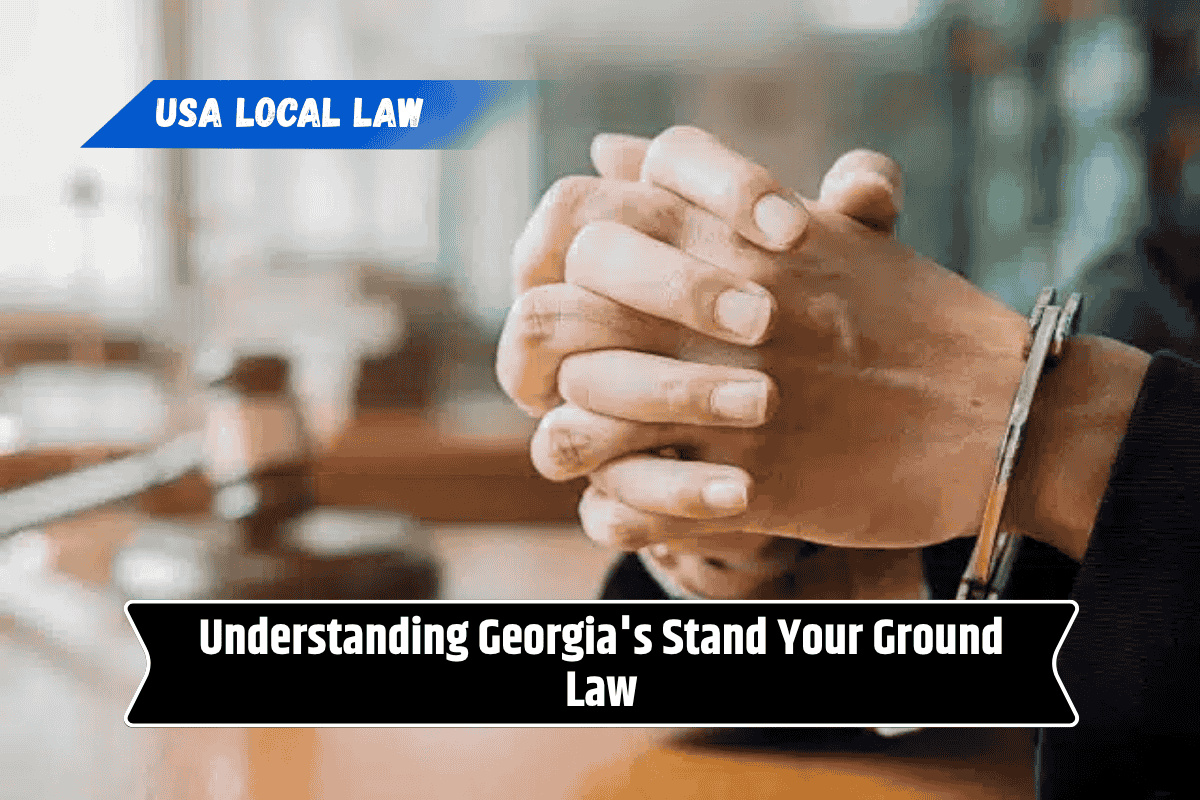Georgia’s Stand Your Ground Law is an important piece of legislation that impacts how individuals are allowed to defend themselves in situations where they feel threatened.
If you’ve ever wondered about the law or its consequences, it’s crucial to understand how it works, what it means for you, and when it might apply.
In this article, we’ll break down Georgia’s Stand Your Ground Law, how it’s different from other self-defense laws, and what you need to know if you ever find yourself in a situation where you feel threatened.
What Is Georgia’s Stand Your Ground Law?
Georgia’s Stand Your Ground Law, passed in 2006, allows individuals to use force in self-defense if they feel threatened, without a duty to retreat from the situation.
This means that if you’re in a situation where you feel your life is in danger or you are about to suffer serious injury, you have the right to protect yourself by using force, including deadly force, if necessary.
Unlike traditional self-defense laws, which may require individuals to retreat from a dangerous situation before defending themselves, the Stand Your Ground Law removes that requirement. If someone is threatening you with violence, you don’t have to attempt to escape before using force to protect yourself.
When Does the Stand Your Ground Law Apply?
The law applies to situations where you feel imminent danger of harm or death. However, there are certain conditions that must be met for the law to apply:
Reasonable Fear of Harm: You must be facing a real and immediate threat. For example, if someone points a weapon at you or attempts to harm you, you can defend yourself.
No Duty to Retreat: You do not have to try to leave the situation if you’re in a place where you have the legal right to be. This includes your home, your car, or public spaces.
Use of Force Must Be Proportional: The force you use must be reasonable to the threat you are facing. Deadly force may only be used if you believe there’s an immediate risk to your life or serious bodily harm.
Not Engaging in Illegal Activity: You cannot invoke the Stand Your Ground Law if you are involved in illegal activity at the time of the incident.
How Does the Law Protect You?
Georgia’s Stand Your Ground Law provides legal protection to individuals who use force in self-defense. If you use force in a situation where the law applies, you can avoid being charged with crimes like assault or homicide. The law presumes that if you were defending yourself, you acted reasonably, and that the threat was genuine.
If you are charged with a crime following an incident where you used force in self-defense, Georgia law allows you to claim immunity from prosecution. This means that a judge can dismiss the case, provided your actions fall under the protections of the Stand Your Ground Law.
What Are the Controversies Surrounding the Law?
While the Stand Your Ground Law has its supporters, it has also sparked significant controversy. Some argue that it encourages people to use force more easily and can lead to unnecessary violence. Critics also say the law may disproportionately affect certain groups, including minorities, and lead to racial bias in self-defense cases.
Opponents believe that removing the duty to retreat could make violent encounters more likely to escalate. There are also concerns that the law can be misused, allowing people to claim self-defense even when their actions weren’t truly necessary.
Supporters, on the other hand, argue that the law gives people the right to defend themselves when they’re in imminent danger and shouldn’t be required to run away if they can’t do so safely.
What Should You Do If You Are Involved in a Stand Your Ground Situation?
If you find yourself in a situation where you need to defend yourself under Georgia’s Stand Your Ground Law, here are a few things to keep in mind:
Act Proportionally: Use only as much force as is necessary to stop the threat.
Stay Calm: Avoid escalating the situation further and act as safely as possible.
Call the Police: As soon as you can, contact law enforcement and report what happened. It’s important to document the situation with the police.
Consult a Lawyer: If you’re involved in a self-defense situation, it’s wise to get legal help to ensure your rights are protected and the case is handled properly.
Georgia’s Stand Your Ground Law is a powerful self-defense law that allows individuals to protect themselves without the duty to retreat when they face imminent danger.
While the law can offer protection in threatening situations, it’s important to understand the requirements and boundaries it sets to ensure that you are acting lawfully.
Always remember that the force you use must be proportional to the threat you face, and when in doubt, it’s best to seek legal advice to navigate any potential legal challenges.
